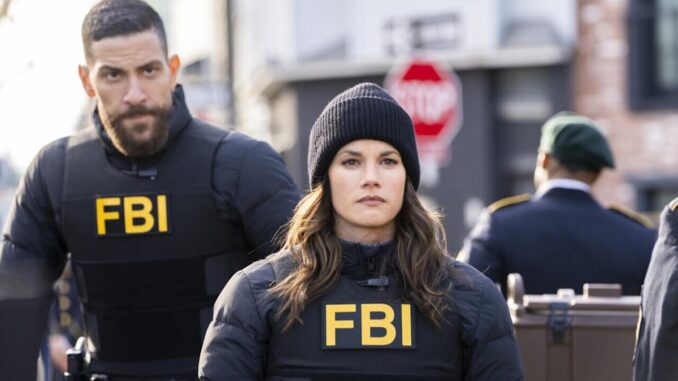
Let’s face it—franchises like FBI, NCIS, and Law & Order are TV royalty. But even royalty isn’t immune to decline. With CBS officially pulling the plug on both FBI: International and FBI: Most Wanted in 2025, we’re seeing déjà vu. And you know what it reminds me of? NBC’s ambitious but ultimately fumbled attempt to build a sprawling One Chicago universe.
So, what went wrong with CBS? Why couldn’t the FBI universe hold its ground? To understand this properly, we have to flash back and unpack what didn’t work with NBC’s One Chicago experiment.
What Was NBC’s One Chicago Universe All About?
H2: The Core of One Chicago
NBC’s One Chicago franchise launched with high hopes. Starting with Chicago Fire in 2012, the universe quickly expanded to include Chicago P.D., Chicago Med, and Chicago Justice. On paper, it was a dream: shared storylines, crossover episodes, and character arcs that flowed like a well-oiled machine.
H3: The Goal? Marvel-Style TV Dominance
NBC wanted what Marvel had in the movies—a universe so interconnected that fans couldn’t afford to skip a single episode. And for a while, it worked. Ratings were solid, fans were invested, and Wednesday nights belonged to Chicago.
Why One Chicago Started Crumbling
H2: Over-Saturation Is Real
Remember when Starbucks opened on every corner and we all got sick of it? Same deal here. NBC churned out so many shows in the franchise that even the most loyal fans couldn’t keep up. With Fire, P.D., Med, and eventually Justice, the content started to feel bloated.
H3: The Weakest Link: Chicago Justice
Chicago Justice was meant to be the fourth pillar, but it never found solid footing. Low ratings, bland characters, and uninspired storylines meant it was canceled after just one season. And that shook the entire Chicago ecosystem.
Parallel Time: CBS’ FBI Universe
H2: How CBS Tried to Build Its Own Empire
Seeing NBC’s success, CBS got in the game. FBI debuted in 2018 and quickly added FBI: Most Wanted and FBI: International. Sound familiar? Same model, different network.
H3: The Three-Show Format—Copying the Blueprint
Just like One Chicago, CBS went with a three-show lineup. The series shared characters, crossed over regularly, and built a steady procedural fanbase. It was cookie-cutter franchise television. But it started cracking.

What Went Wrong With CBS’ FBI Franchise
H2: Viewership Decline in a Streaming Age
TV has changed. People no longer gather at 8 PM with popcorn to watch a network drama. CBS failed to evolve fast enough. While streaming platforms served up fresh, binge-worthy crime dramas (Mindhunter, Narcos, Bodyguard), CBS stuck to old-school formulas.
H3: Repetition Breeds Apathy
Let’s be honest—how many times can you watch another “agent races against the clock to stop a bomb” episode? The formula became predictable. Viewers want surprise, nuance, and emotional depth—not just a new city with the same recycled plot.
H3: Casting Challenges and Character Fatigue
Like One Chicago, FBI’s characters started to feel replaceable. There were exits, swaps, and reboots that never quite landed. When fans can’t connect with the faces onscreen, they stop caring about the story.
NBC’s One Chicago and CBS’ FBI: A Side-by-Side Comparison
| Aspect | NBC’s One Chicago | CBS’ FBI Universe |
|---|---|---|
| Launch Year | 2012 | 2018 |
| Peak Viewership Period | 2014-2017 | 2019-2022 |
| Weakest Link | Chicago Justice | FBI: International |
| Key Problem | Franchise fatigue | Formulaic storytelling |
| End Result | Partial survival | Franchise collapse (2025) |
The Power—and Danger—of Spinoffs
H2: When Do Spinoffs Work?
Spinoffs work when they feel fresh but familiar. Think Frasier from Cheers. Or Better Call Saul from Breaking Bad. But franchises like FBI and One Chicago didn’t reinvent—just cloned.
H3: The Clone Effect: Why Audiences Tune Out
Imagine ordering a different burger at a restaurant every night, only to realize they all taste exactly the same. That’s what these franchises became: same seasoning, different bun.
Why NBC’s Mistakes Should’ve Been a Red Flag for CBS
H2: Ignoring History Leads to Repetition
NBC had already shown that over-expansion could kill momentum. CBS ignored the lesson. Instead of evolving, it duplicated. And just like that, it suffered the same fate.
H3: Crossovers Are Not Enough Anymore
Gone are the days when a character popping into another show sparked excitement. Today’s viewers demand stakes and stories that matter—not just gimmicks.
The Streaming Elephant in the Room
H2: Linear TV Is Losing the War
Streaming changed the game, and CBS didn’t pivot fast enough. FBI’s traditional format struggled to compete with true crime docuseries, high-budget thrillers, and international dramas.
H3: Network TV Is Becoming the DVD in a Netflix World
It’s like still renting DVDs when everyone’s watching on demand. CBS—and NBC before it—stayed stuck in a formula that aged out of relevance.
Can Procedural Franchises Still Survive?
H2: Reinvention Is the Only Way Forward
For future franchises to thrive, they must evolve. That means bolder storytelling, less predictability, and more character-driven arcs.
H3: Leaner, Smarter, Sharper
Instead of building empires, networks should focus on building better shows. Quality over quantity. Emotion over explosions. That’s what today’s audience craves.
What TV Networks Can Learn From This
H2: Stop Copy-Pasting Success
Just because a formula worked once doesn’t mean it’ll work forever. Innovation beats imitation. Always.
H3: Listen to Viewers, Not Just Ratings
Engagement matters more than numbers. Are fans tweeting? Creating memes? Writing fanfiction? If not, maybe your show isn’t making an impact.
Conclusion: The Rise and Fall of Franchise TV
The fall of CBS’s FBI spinoffs in 2025 isn’t just an isolated event—it’s the echo of a pattern TV networks keep repeating. NBC’s One Chicago laid the blueprint, and CBS followed it to the same disappointing end.
Franchises aren’t dead, but they need to change. The future of television lies not in expanding universes, but in deepening characters, stories, and themes that truly resonate.
FAQs
1. Why did CBS cancel both FBI spinoffs in 2025?
CBS canceled FBI: International and FBI: Most Wanted due to declining viewership, over-saturation, and changing audience habits in the streaming era.
2. What was NBC’s One Chicago universe?
NBC’s One Chicago franchise included Chicago Fire, P.D., Med, and Justice. It aimed to create a shared universe across multiple shows but eventually faltered due to fatigue and weak entries.
3. Are procedural dramas like FBI and One Chicago outdated?
Not necessarily. They’re not outdated, but they need evolution. Audiences now expect layered storytelling, deeper characters, and modern themes.
4. Can franchise TV ever be successful again?
Yes, if done right. Franchises must focus on quality, character arcs, and avoid formulaic repetition to succeed in the modern landscape.
5. What should networks do instead of launching spinoffs?
Networks should focus on creating compelling standalone shows with original voices and high production value, embracing modern storytelling trends and streaming platforms.